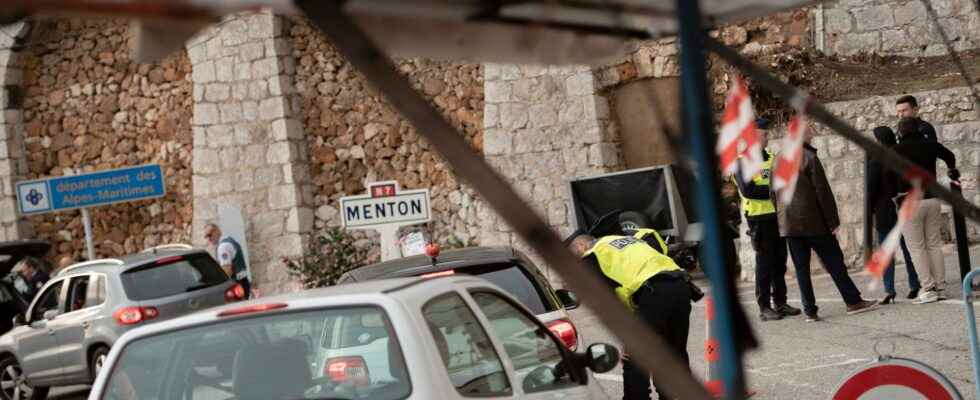Published: Less than 2 hours ago
1 of 3 Photo: Marco Alpozzi/AP/TT
The war of words over the Ocean Viking rescue ship has led France to impose passport controls on Italy – a response Rome objects to.
The queues grew long on Sunday in Ventimiglia.
A flaring diplomatic row between France and Italy over migrants has prompted the French to introduce passport controls at the border with their south-eastern neighbour, and on the Italian side traffic was immediately seen at a standstill outside the Italian border town on the Mediterranean.
And those migrants who didn’t make it to Menton on the French side of the border, or didn’t even try to get past passport controls, stayed in Italy, building temporary accommodation under a motorway overpass.
France has sent 500 people to reinforce the border and both cars and trains are being watched – and closely. Virtually every car was stopped on Sunday, tailgates were checked and truck trailers were opened, AP reports.
Migrants were allowed to leave the ship
The action comes after weeks of a war of words between the countries, which escalated with the fate of the rescue ship Ocean Viking.
The rescue ship, with roughly 230 migrants on board, had to dock in the port of Toulon on Thursday. The ship has since left Toulon, while the refugees on board have been taken to camps in France. The decision, which was taken under the leadership of French Prime Minister Élisabeth Borne, came after the ship was denied port access in Italy.
In response to Italy’s actions, France has withdrawn from a solidarity program in which it agreed to accept 3,000 migrants from Italy. Thus, French government spokesman Olivier Véran calls Italy “losers” in the dispute.
“Aggressively” and “disproportionately” Italy responded and was supported by Greece, Malta and Cyprus.
Joint play
In a joint move, the four countries demand that the EU’s rules on first country of arrival must be changed. At the same time, they criticize aid organizations and their ships that rescue migrants in the Mediterranean.
The four further express a “disappointment” that previous agreements that other countries within the EU should receive migrants who have arrived in first arrival countries are moving too slowly and that they have to take too much of the burden of “the management of migration across the Mediterranean in terms of international commitments and EU rules’.
